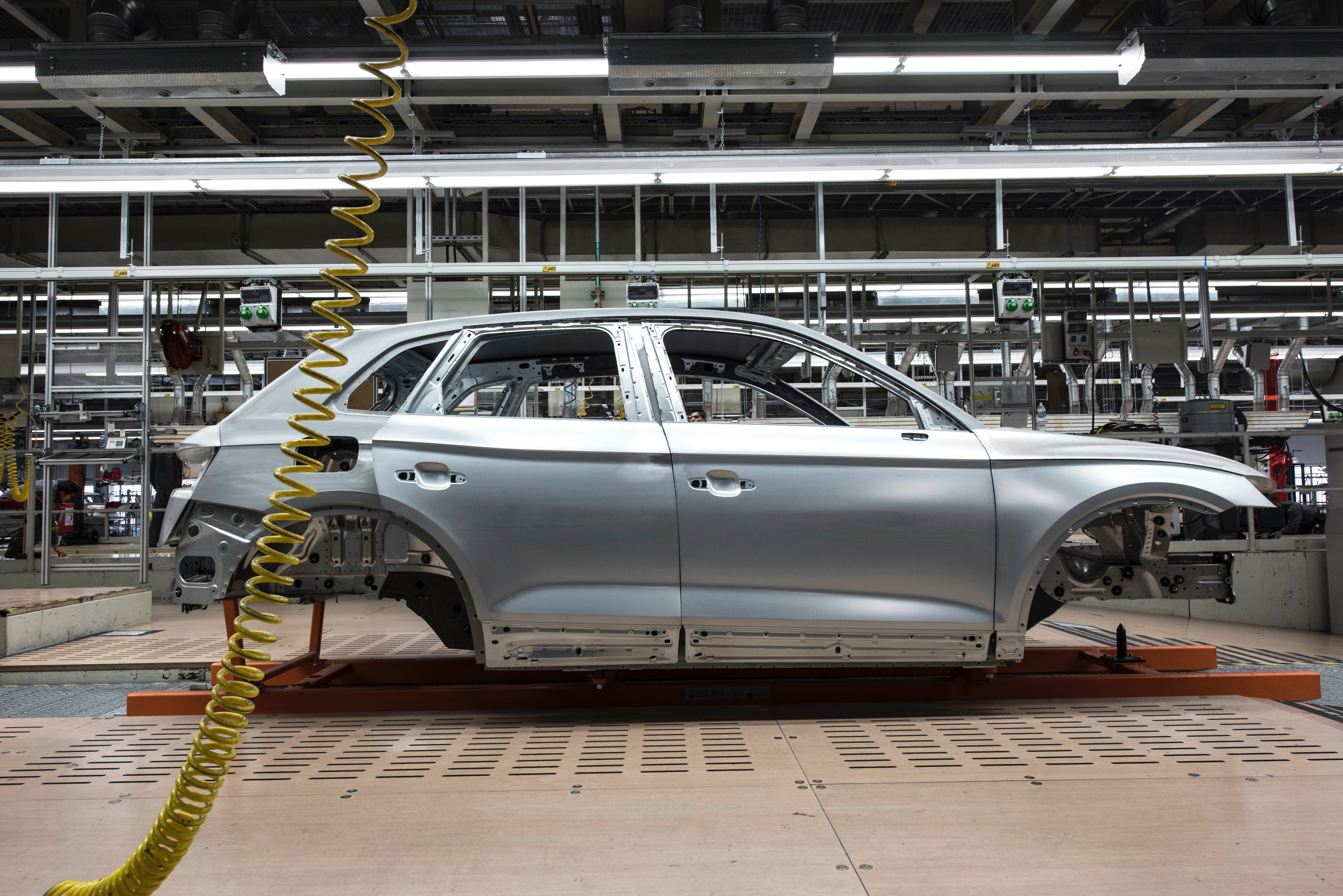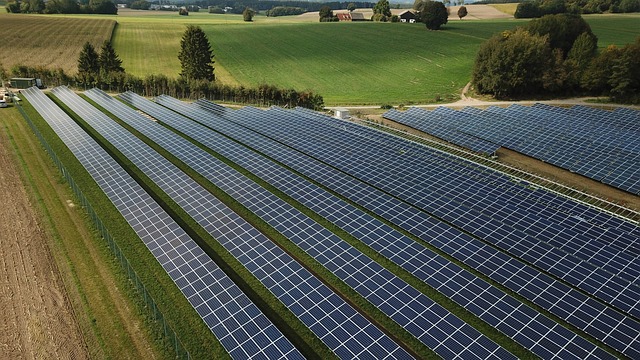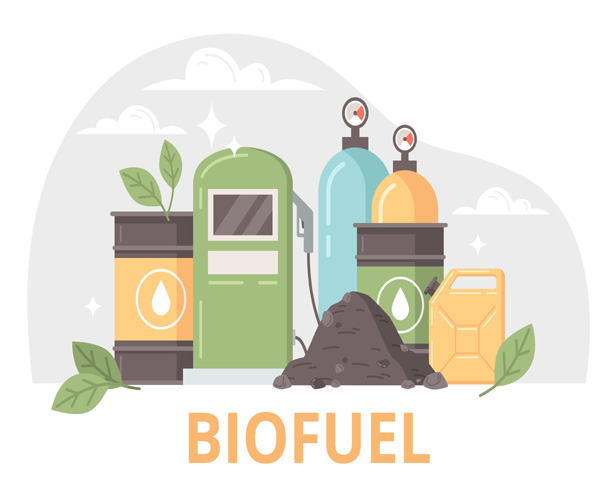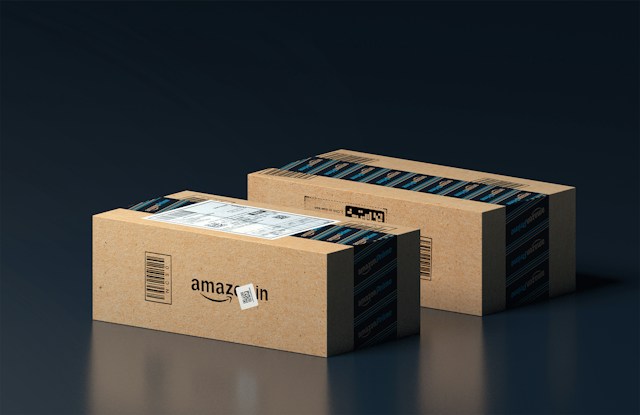The AAP government today has informed the Supreme Court that it is ready to necessary steps such as imposing a complete lockdown to curb the air pollution in the capital.

Dell has teamed up with Intel to produce Concept Luna which claims to have a sustainable design to have reduced carbon output and electronic waste.

Steel is a major component of car manufacturing. Steel is also one of the most carbon intensive things, as more carbon is produced during the production of steel than steel itself. One of the most popular car manufacturers of Germany- BMW, is switching to low carbon steel now to reduce its carbon footprint.

Cellulose is the most abundant and robust naturally occurring fiber that is widely used. This fiber is a collection of organic cellulose nanocrystals or (CNC) which are almost perfectly packed to form the hardest part of the cell wall. Cellulose can be integrated into polymers to make them stronger.

Concrete is the second most used commodity in the world, water comes first. From skyscrapers, roads to bridges, concrete also has one of the most carbon-intensive manufacturing processes. It is made by heating limestone and melting it. Not only does heating emit lots of carbon dioxide, but the chemical process also releases a lot of carbon dioxide. Steel is also one of the most important modern materials which is responsible for lots of carbon emissions.

The Egyptian authorities have announced that this Eid there will be an eco-friendly alternative to the traditional lanterns as they are environmentally harmful.

In an attempt to bring a positive environmental change into the society, the Khairtabad authorities have decided to build the Ganesha idol eco-friendly by replacing PoP with clay.

In an attempt to minimize the use of plastic in the packaging, Godrej appliances have announced that the company has filed for a patent for eco-friendly packaging. Godrej Appliances is planning to replace Expanded Polystyrene Foam (EPS) which is known as thermocol with paper-based honeycomb (HC) packaging solutions.

The beauty industry is a major polluter, and it is responsible for a significant amount of carbon emissions and plastic waste. There is an immediate need for carbon neutrality and plastic-free initiatives in the beauty industry.

Amidst mounting concerns about environmental impact, the personal care industry stands at a crossroads, facing the challenge of aligning its practices with climate-positive action. As the imminent bans on wet wipes and the surge of fatbergs choking city sewers underscore the urgency of change, Jeremy Freedman, the Managing Director of sustainable personal care manufacturer Guardpack, asserts that the industry can and must embrace sustainability to lead the way for broader change.

Indonesia's serene island of Bali is celebrated for its lush landscapes, vibrant culture, and now, an educational revolution. Amidst the dense jungles and sprawling rice fields, an extraordinary school is redefining the traditional norms of education. Welcome to Green School Bali, an international pre-kindergarten to high school that is as green as it is innovative. This radically different learning institute is dedicated to nurturing a new generation of changemakers equipped to tackle global issues like climate change.

Keppel Corporation Limited and AM Green, a Greenko Group subsidiary, have joined forces to advance sustainable fuels such as bio and green methanol, 2G ethanol, and sustainable aviation fuel (SAF) as part of their commitment to decarbonize heavy industries and aviation in Southeast Asia and the Middle East.

The Adani Group, run by Indian businessman Gautam Adani, has presented plans for the world's largest renewable energy complex, to be located in the enormous expanse of northwestern India's Rann desert.

Firefly Green Fuels, a UK-based startup, created a unique type of jet fuel produced entirely of human waste, transforming sewage into fossil-free fuel.

MIT researchers have developed a new organic battery material, described in a study published in ACS Central Science, that provides a sustainable alternative for powering electric vehicles. This lithium-ion battery uses an organic cathode instead of cobalt or nickel, which are routinely utilized but have high financial, environmental, and social implications.

Rest easy for both your body and the planet with a new wave of eco-friendly mattresses! Ditch the traditional, often chemical-laden options and embrace these sustainable picks for a healthy sleep and a lighter conscience.

Assam's Governor recently delivered a powerful message, urging all government departments to align their work with the United Nations' Sustainable Development Goals (SDGs). These 17 interconnected goals, ranging from poverty eradication to climate action, provide a roadmap for a more just and sustainable future.

Traditional gift-giving is what we know as wrapping parcels, bulging shopping bags, and loads of unwanted packaging. But have you wondered what happens to those gifts that end up unused and thrown away, they contribute to environmental pollution. So, does this mean we should stop giving gifts to our loved ones? That would not be an appropriate solution.

While Amazon's vast operations raise sustainability concerns, they're also leveraging AI to tackle these challenges. Amazon is using AI as a key tool in its quest for a more sustainable future.

Imagine a chicken named Potato teaching kids about climate change – sounds like a joke, right? But it's not! Future Chicken, an

 Technology is a useful servant, but a dangerous master, it was rightly said. Electronic devices have grown into an inevitable part of our daily lives.
Technology is a useful servant, but a dangerous master, it was rightly said. Electronic devices have grown into an inevitable part of our daily lives.


